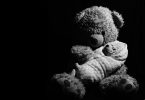MUCHEMI PETER
The purpose of this article is to review research on how people can be influenced by personal experiences of victimization whether real or imagined towards terror behavior tendencies. There have been a series of studies conducted to examine the profile of terrorists. So far, it has been observed that many forms of terrorisms exist, and their character has changed over time and from country to country, hence making it even more difficult to establish a profile for terrorist. Further, it has been observed that, individually, there is not a single factor that can help explain why people become terrorists, but, taken in combination, religious, political, psychological and ideological factors do provide a powerful framework for understanding why a person might choose to become a terrorist. A factor that features in the profiles of Jermaine Lindsay and Osama-bin-Laden is their mistreatment when they were at their tender ages. For example the mistreatment of bin-Laden by his father and the fact that he witnessed his mother being mistreated, is an indication that Osama may have felt victimized in his formative stages, a factor that may have guided his actions throughout life either consciously or unconsciously. The purpose of this paper is to synthesize what has been reported from the scientific and professional literature about the psychology of terrorism, paying particular attention to the subsequent behavior tendencies of people who have had personal experiences of victimization. This may help unveil how personal experiences of victimization can serve as a contributing factor to terrorism behavior among Kenyan nationals
Review Score
-
Performance
-
Design
-
Flexibility
-
Durability







